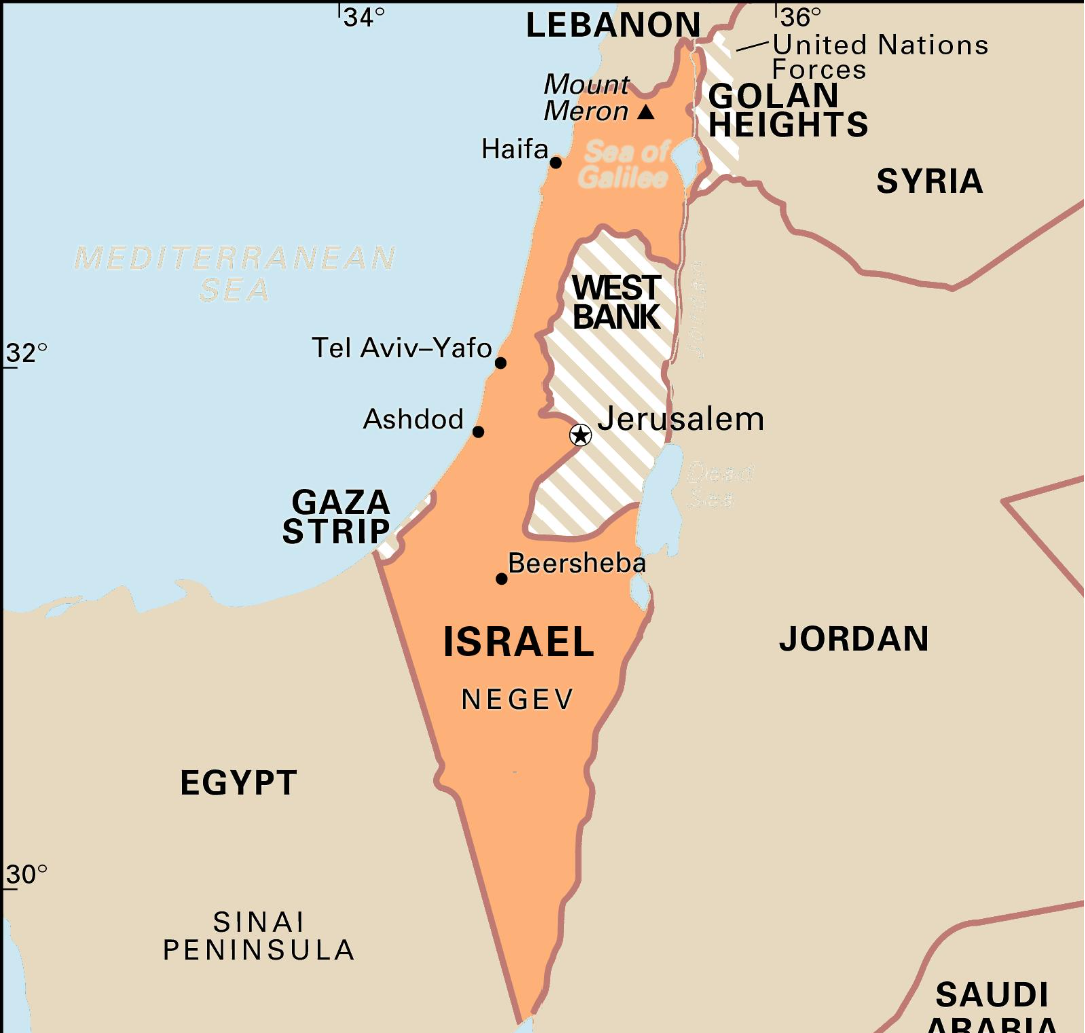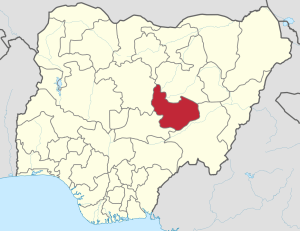The Bible traces its origins to the Land of Israel.
Without Israel, humanity would be deprived of the Word of God, among many other benefits. Israel, often referred to as a nation of the chosen people consists mainly of Jews as the majority and holds a significant place in history. It is a nation deeply rooted in religious significance and biblical narratives.
Without Israel, humanity would be deprived of the profound teachings and wisdom in the Word of God. The Bible, cherished by billions worldwide, draws extensively from Israel’s history and culture. From the stories of great prophets like Moses and Abraham to the moral teachings encapsulated in the Ten Commandments, all find their origins within this ancient land.
In this land, the Bible originated, hence the significance of Israel to humanity.
Moreover, Israel is a constant reminder of faith and perseverance, as its people have overcome countless trials throughout history. By existing as a testament to resilience and spiritual devotion, Israel inspires individuals from diverse backgrounds, preserving its valuable customs and traditions for posterity.
The Land Flowing with Milk and Honey
Israel is often referred to as holding deep significance in the religious and cultural realms. The land exudes abundant blessings, symbolizing devotion and obedience. The biblical narrative paints a picture of a land flowing with milk and honey, where fertile fields yield bountiful harvests and sweet nectar flows freely. This imagery serves as a metaphor for the richness of life that can be achieved through faith and righteousness.
Israel’s agricultural landscape is diverse, from lush valleys to arid deserts, each offering unique beauty. The fertile soil of the Jordan Valley supports an array of crops, while the arid Negev Desert showcases the resilience of its people through innovative irrigation techniques. Israel’s landscapes are awe-inspiring, from date palms swaying in the gentle breeze to vineyards stretching as far as the eye can see.
But beyond its physical beauty, Israel’s land holds historical significance intertwined with religious beliefs. Here, pivotal events in biblical stories unfolded, from the crossing of the Red Sea to the ascent of Mount Sinai. These sacred sites serve as tangible connections to our spiritual heritage, allowing believers to walk in the footsteps of their ancestors.
Moreover, Israel’s rich cultural tapestry reflects centuries of diverse influences. Its cuisine is a melting pot of flavors borrowed from neighboring countries like Lebanon and Morocco, resulting in tempting dishes such as falafel and shawarma. Traditional dances like the hora showcase vibrant rhythms passed down through generations. Festivals celebrating Jewish holidays bring communities together in joyous harmony.
Israel’s significance extends far beyond its physical borders. It embodies faith, resilience, and cultural diversity—qualities that continue to inspire individuals across the globe. As we delve into its history and explore its breathtaking landscapes, we gain valuable insights into our shared human experience while marveling at the wonders of this ancient land. The Nation of Israel, with its profound teachings and rich heritage, stands as a testament to the power of faith and the enduring legacy of a chosen people.
The Land of Abraham, Isaac, and Jacob
The Land of Abraham, Isaac, and Jacob, as Israel is also known, holds a deep connection to the roots of Judaism. It is a land that carries the legacy of three great patriarchs whose faith and obedience shaped history. Abraham, known as the father of monotheism, embarked on a journey of faith that led him to this promised land. His son Isaac and grandson Jacob continued the lineage of spiritual leadership, each leaving their mark on the land they called home. From the sacred City of Hebron, where Abraham and Sarah are buried, to the ancient wells where Jacob’s flocks grazed, these sites serve as tangible reminders of our ancestral heritage.
Furthermore, Israel’s landscapes encapsulate the stories of these forefathers. The rolling hills of Hebron echo with tales from Abraham’s time, while the plains surrounding Beersheba bear witness to Isaac’s abundant blessings. The terrain near Bethel reflects Jacob’s wrestling match with God and his transformation into Israel. These natural wonders serve as living monuments to the faith and struggles that have shaped individuals and nations.
Throughout history, the descendants of Abraham have been scattered across different lands over millennia, resulting in a fusion of customs and traditions that enriches Israeli society. From Ashkenazi Jews who trace their ancestry back to Eastern Europe to Sephardic Jews whose roots lie in Spain and North Africa, each group contributes unique elements to the vibrant mosaic of Israeli culture.
The Lands of Abraham, Isaac, and Jacob embody religious significance and represent an enduring testament to human resilience and cultural diversity. Exploring its rich heritage and breathtaking landscapes deepens our understanding of Judaism and our shared humanity. As we reflect upon this ancient land’s teachings and embrace its multicultural fabric, we can find inspiration in the stories it holds and the unity it represents. The Book of Matthew, chapter 1, details the genealogy of Jesus Christ, starting with Abraham and ending with Jesus Christ.
The Old Testament Prophets and the 24 elders came from Israel.
God used His prophets in the Old Testament to lead and shepherd Israel spiritually and to prophecy and set the stage for the coming of his Son, Jesus Christ, in the New Testament. God used them specifically to prophecy about the coming of the Messiah of Israel. He used them to foretell future events that we are witnessing in these modern times. The prophets saw the coming of the Messiah of Israel, which has already been fulfilled, and also made prophecies about the state of Israel and its future until the second coming of the Lord Jesus Christ to the Mount of Olives.
The twelve tribes of Israel represented in heaven came from Israel and the Old Testament. The twelve Apostles of Jesus Christ form part of the twenty-four council of elders, comprised of the twelve representatives of the twelve tribes of Israel and the twelve Apostles of Jesus Christ, and sit as God’s commission of elders in heaven. Both groups came from Israel and not from any other country, thus making Israel a special, unique, and different country than any other in the world.
Revelation 4:4-6 4 Surrounding the throne were twenty-four other thrones, and seated on them were twenty-four elders. They were dressed in white and had crowns of gold on their heads. 5 From the throne came flashes of lightning, rumblings, and peals of thunder. In front of the throne, seven lamps were blazing. These are the seven spirits of God. 6 Also in front of the throne was what looked like a sea of glass, clear as crystal.
Most people worldwide use biblical first names derived from the roots of Israel, like the tribes of Israel and the patriarchs.
How can the existing world turn its back on its mother, Israel? That would be foolhardy and a tremendous failure of spiritual magnitude. Modern society should avoid falling into the trap of emotionalism and forgetfulness of their valuable history and how they came to be from the roots of Israel. Any society that forgets history is foolish.
The Land of The Birth of The Messiah
As Israel is known in Christian tradition, the Land of the Birth of the Messiah holds profound religious significance for billions worldwide. In Bethlehem, the story of the Nativity unfolded—a humble stable where Mary gave birth to Jesus, the long-awaited Messiah. This sacred site is a testament to the power of hope and redemption, reminding believers of the miraculous events over two thousand years ago.
Israel is the root of all humanity. God used Moses and imparted to him the history of creation when he met with Him on Mount Sinai, forming the foundation of the Bible and setting the stage for the coming of the Messiah and savior of all humanity, Jesus Christ, who was born in Bethlehem of Judea. Beyond their religious importance, Israel’s landscapes also provide a backdrop for reflection and contemplation. From the serene Sea of Galilee, where Jesus preached His teachings, to the rugged hills surrounding Jerusalem, where He carried his cross, these natural wonders evoke a sense of awe and reverence. Walking in the footsteps of Jesus allows pilgrims to connect with their faith on a deeper level, experiencing firsthand the places where miracles occurred and divine messages were shared.
Moreover, Israel’s cultural diversity extends to its Christian communities. From Greek Orthodox Christians maintaining ancient traditions to vibrant protestants, each group contributes to this holy land’s rich tapestry of Christian worship. Festivals such as Easter and Christmas unite believers from different backgrounds and denominations in their devotion to Christ.
The Land of the Birth of the Messiah holds a special place in the hearts of Christians worldwide. It is a physical location and a spiritual sanctuary where believers can connect with their faith and find solace in their devotion. Israel’s historical sites and cultural heritage are reminders of the enduring message of love and salvation emanating from this sacred land.
The Land where Jesus was crucified, died, and resurrected on the third day
Jerusalem, Israel, is one of the most significant sites in Christian history. Golgotha, or Calvary, is a holy ground in Jerusalem that holds immense importance for believers worldwide. Here, Jesus willingly sacrificed himself for the redemption of humanity, bearing the weight of our sins on his shoulders. The sight of the empty tomb where he rose again fills Christians with hope and reassurance, a testament to the power of faith and the promise of eternal life.
John 11:25-26New International Version
25 Jesus told her, “I am the resurrection and the life. The one who believes in me will live, even though they die, 26, and whoever lives by believing in me will never die. Do you believe this?”
Walking through the narrow streets of Jerusalem’s Old City, one can’t help but feel a sense of awe and reverence, knowing that they are treading the same paths that Jesus once walked. From the Via Dolorosa, believed to be the route Jesus took carrying his cross, to the Church of the Holy Sepulchre, where he was crucified and buried, every corner holds a piece of this profound story.
The significance of this land extends beyond its religious importance. It is a potent reminder that love and compassion can triumph over hate and persecution. Standing in this hallowed place, we are reminded of Christ’s sacrifice and our responsibility to embody his teachings. The land where Jesus was crucified, died, and resurrected speaks volumes about resilience, forgiveness, and hope—values that resonate with people from all walks of life.
Jesus was crucified and resurrected in Jerusalem, and visiting can be an incredibly moving experience for Christians worldwide. It can deepen our faith, connect us with our spiritual roots, and help us find solace in knowing that we are part of a greater narrative unfolding through time. Walking in Jesus’ footsteps and contemplating his sacrifice on Golgotha’s soil sounds motivational and may help Christians strive to live lives filled with love and grace, inspired by the profound message of redemption emanating from this sacred land.
The Land where Jesus ascended back to heaven and where He is expected to return on the Mount of Olives
The Mount of Olives in Israel holds significant spiritual importance for Christians worldwide. This sacred site is where Jesus ascended back to heaven after his resurrection, and it is also believed to be where he will return during his second coming. Standing on this hallowed ground, believers are filled with anticipation and wonder, contemplating the fulfillment of biblical prophecies and the promise of Christ’s triumphant return.
The Mount of Olives offers breathtaking views of the holy City below as a reminder of Jesus’ teachings and his ultimate victory over sin and death. Here, he delivered his powerful sermon on the mount, or the end times, also known as the Olivet Discourse. Looking out over Jerusalem from this vantage point, one can imagine what it will be like when Jesus returns to establish his kingdom on earth.
In addition to its religious significance, the Mount of Olives holds historical and cultural importance. It is home to numerous ancient Jewish tombs, including those belonging to prominent figures from biblical times. The olive trees that dot its slopes symbolize peace and prosperity, deeply rooted in Jewish and Christian traditions.
Visiting the Mount of Olives allows believers to connect with their faith profoundly. Walking along its paths and reflecting on the biblical events that unfolded here offers a tangible link to the life and teachings of Jesus. It serves as a reminder that our journey as Christians is not only about looking back at what has already happened but also eagerly anticipating what is yet to come.
The Mount of Olives holds great significance for Christians worldwide and represents a place where the past meets the future, and faith intersects with hope. Standing on this sacred mountaintop, we are reminded of Christ’s victory over sin and death and encouraged to live in joyful expectation of his glorious return.
Jerusalem, The City of God, is the Headquarters and Base of Operations
Psalm 132:13-14 New King James Version
13 For the Lord has chosen Zion;
He has desired it for His dwelling place:
14 “This is My resting place forever;
Here I will dwell, for I have desired it.
God has declared and chosen Jerusalem as His dwelling place forever, hence the need to pray and stand with Israel because, without Israel, there cannot be Jerusalem. This is God’s preferred City, and He will dwell there permanently when Jesus returns in His Second Coming. There is no comparable city in the world where God specifically designated it as His headquarters and a permanent dwelling place but Jerusalem.
Exodus 25:22 New King James Version
22 And there I will meet with you and speak with you from above the mercy seat, between the two cherubim on the ark of the Testimony, about everything which I will give you in commandment to the children of Israel.
Psalm 48 New King James Version
The Glory of God in Zion
A Song. A Psalm of the sons of Korah.
48 Great is the Lord, and greatly to be praised
In the City of our God,
In His holy mountain.
2 Beautiful in elevation,
The joy of the whole earth,
Is Mount Zion on the sides of the north,
The City of the Great King.
3 God is in her palaces;
He is known as her refuge.
Psalm 137:5-6 New King James Version
5 If I forget you, O Jerusalem,
Let my right hand forget its skill!
6. If I do not remember you,
Let my tongue cling to the roof of my mouth—
If I do not exalt Jerusalem
Above my chief joy.
If The Almighty God, the Beginning and The End, has chosen Israel and specifically Jerusalem, who are we to go against His Will? Instead, we must agree, remain obedient to Him, defend what He established through faith, and pray for Israel. Our prayers will help the nation of Israel stand firm and withstand a barrage of sustained attacks against it by its bitter enemies until Jesus descends from heaven to the Mount of Olives in the Second Coming.
All Christian believers must pray for the peace of Jerusalem and the Land of Israel.
The Nation of Israel holds tremendous importance for every believer in the Lord. It will forever remain significant. Hence, there is a need for Christians worldwide to pray daily for the peace of Jerusalem. It is a land where Jesus sacrificed Himself for the redemption of humanity, bearing the weight of our sins on his shoulders. The sight of the empty tomb where he rose again fills Christians with hope and reassurance, a testament to the power of faith and the promise of eternal life.
Walking through the narrow streets of Jerusalem’s Old City, one can’t help but feel a sense of awe and reverence, knowing that they are treading the same paths that Jesus once walked. From the Via Dolorosa, believed to be the route Jesus took carrying his cross, to the Church of the Holy Sepulchre, where he was crucified and buried, every corner holds a piece of this profound story. Eternal hope and assurance for salvation through faith in Jesus Christ are possible because of Israel.
But beyond its religious importance, Israel is a potent reminder that love and compassion can triumph over hate and persecution. Standing in this hallowed place reminds us of Christ’s sacrifice and our responsibility to embody his teachings. The land where Jesus was crucified, died, and resurrected speaks volumes about resilience, forgiveness, hope, and values that resonate with people from all walks of life.
Pray for the peace of Jerusalem.
Psalm 122:6 Good News Translation
6. Pray for the peace of Jerusalem.
“May those who love you prosper.
And in our prayers, may we always remember to seek the face of God in prayer for the peace of Jerusalem and the land of Israel.
When Jesus returns, we shall all gather together on the Mount of Olives in His Second Coming.
God will bless those who bless Israel.
We can be blessed for praying for the peace of Jerusalem and the nation of Israel because that is where the true journey of our faith began and will conclude at the return of Jesus Christ on the Mount of Olives in His second coming.
Numbers 24:9 Good News Translation
9. The nation is like a mighty lion.
When it is sleeping, no one dares wake it.
Whoever blesses Israel will be blessed.
And whoever curses Israel will be condemned.”
Genesis 12:3 (New King James Version)
3 I will bless those who bless you.
And I will curse him who curses you.
And in you, all the families of the earth shall be blessed.”
God will destroy Jerusalem’s Enemies
Zechariah 12–14, New International Version
12 A prophecy: The word of the Lord concerning Israel
The Lord, who stretches out the heavens, lays the earth’s foundation, and forms the human spirit within a person, declares: “I am going to make Jerusalem a cup that sends all the surrounding people reeling. Judah will be besieged, as well as Jerusalem. On that day, when all the nations of the earth are gathered against her, I will make Jerusalem an immovable rock for all the nations. All who try to move it will injure themselves. 4 On that day, I will strike every horse with panic and its rider with madness,” declares the Lord. “I will keep a watchful eye over Judah, but I will blind all the horses of the nations. 5 Then the clans of Judah will say in their hearts, ‘The people of Jerusalem are strong because the Lord Almighty is their God.’
6 “On that day, I will make the clans of Judah like a firepot in a woodpile, like a flaming torch among sheaves. They will consume all the surrounding peoples right and left, but Jerusalem will remain intact in her place.
7 “The Lord will save the dwellings of Judah first, so that the honor of the house of David and Jerusalem’s inhabitants may not be greater than that of Judah. 8 On that day, the Lord will shield those who live in Jerusalem so that the feeblest among them will be like David, and the house of David will be like God, like the angel of the Lord going before them. 9 On that day, I will set out to destroy all the nations that attack Jerusalem.
Ultimately, God is the Keeper and Defender of Israel, and its enemies are just wasting their time and resources fighting a losing battle, but Israel must defend herself. All Christians worldwide must support Israel with many prayers; she must prevail and emerge victorious.




